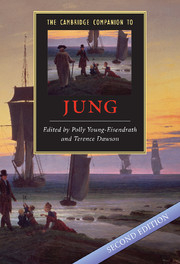New developments in the post-Jungian field
Published online by Cambridge University Press: 28 June 2008
Summary
In university settings, it is my habit to begin lectures on analytical psychology, especially to those not taking degrees in Jungian psychology, by asking those present to do a simple association exercise to the word “Jung.” I ask them to record the first three things that come to mind. From the (by now) 900+ responses, I have found that the most frequently cited theme, words, concepts, or images have (in order) to do with (a) Freud, (b) psychoanalysis, and (c) the Freud-Jung split. The next most frequently cited association concerns (d) Jung's anti-Semitism and alleged Nazi sympathies. Other matters raised include (e) archetypes, (f) mysticism/philosophy/religion, and (g) animus and anima. Obviously, this is not properly empirical research. But if we “associate to” the associations, we can see that there is a lingering doubt about the intellectual, scholarly, and ethical viability of taking an interest in Jung. Even so, in these pages, I shall argue that there is more to the question of Jung and Freud's psychoanalysis than the oft-repeated story of two wrestling men. Over the past decade, there has been increasing clinical and academic interest in analytical psychology in non-Jungian circles, in spite of the fact that its core texts are not effectively represented on official reading lists and curriculum descriptions. Outside of this interest, though, Jung is mentioned primarily as an important schismatic in the history of psychoanalysis and not as a contributor worthy of sustained and systematic study in his own right.
- Type
- Chapter
- Information
- The Cambridge Companion to Jung , pp. 1 - 16Publisher: Cambridge University PressPrint publication year: 2008
- 8
- Cited by



